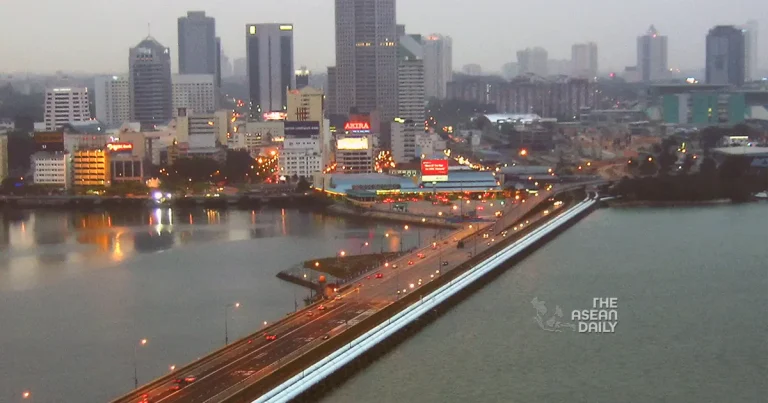26-9-2024 (SINGAPORE) With less than a week until the implementation of the Vehicle Entry Permit (VEP) scheme for Singapore-registered vehicles, a growing chorus of concern is rising from both sides of the Johor-Singapore border. Vehicle owners, including Malaysian nationals working in Singapore, are increasingly anxious about meeting the 1st October deadline, with many still struggling to secure their permits.
The impending enforcement has sparked urgent appeals to the Transport Ministry for a deferment, with critics calling for a focus on streamlining the application process before rolling out the scheme. Long queues have become a common sight at VEP centres in both Johor Baru and Singapore, with applicants arriving as early as 7am in hopes of completing their registrations.
Sharifuddin Mohd Din, a 56-year-old Malaysian food store owner in Singapore, faces the prospect of a dramatic change to his daily commute if his VEP application isn’t processed in time. “I’ve been trying to apply for over a month without receiving any confirmation,” he laments. “If I’m unsuccessful by next week, I’ll have to resort to taking the bus, meaning an even earlier start to my already gruelling 2am departure.”
The situation is equally dire for Singaporean visitors to Malaysia. Adnan Huzir, a 62-year-old retiree, recounts his frustrating experience at the Danga Bay VEP collection centre: “I arrived at 9am to find about 100 people already queuing. Seven hours later, I’m still waiting. Some applicants told me they’d been here since 4am, despite the office only opening at 9am.”
Adnan, a frequent visitor to Johor Baru, suggests increasing staffing levels to handle the influx of applications. “This is a massive undertaking, given the thousands of vehicles crossing the border daily. They need more personnel, perhaps even volunteers or part-timers, to manage the workload.”
The potential economic impact of the VEP scheme is also raising concerns. Joshua Tan, a 37-year-old Singaporean cook, warns of the consequences for Johor’s businesses. “Many of us come to Johor for shopping, dining, and holidays. It’s unfair for local businesses to suffer due to this decision,” he argues, doubting the ministry’s ability to clear the backlog of applications by the deadline.
Hussein Ibrahim, secretary-general of the Johor Indian Muslim Entrepreneurs Association (Perusim), echoes these concerns, calling for an extension of the deadline. “Enforcing the VEP will inevitably affect local businesses as they may lose Singaporean customers who fail to obtain the tag in time,” he explains. “While some visitors use public transport, those who drive make up a larger percentage, especially weekend visitors.”
In response to the mounting pressure, two additional locations for the installation of Radio Frequency Identification (RFID) tags were opened on Sunday: the Road Transport Department in Taman Daya and the Southern Region Road Transport Academy in Larkin, both in Johor Baru.
The VEP scheme, initially announced in 2017 and twice postponed due to technical issues, requires foreign vehicles entering Malaysia from Singapore to display a VEP tag from 1st October. Failure to comply could result in fines of up to RM2,000 or imprisonment for up to six months upon conviction.

Transport Minister Anthony Loke had previously stated that an estimated 18,000 Singaporean vehicles cross the Causeway daily, making it one of the world’s busiest land border crossings. Under the new system, Singapore vehicles will be scanned upon entry and exit, continuing to pay the existing Road Charge of RM20 per entry.




